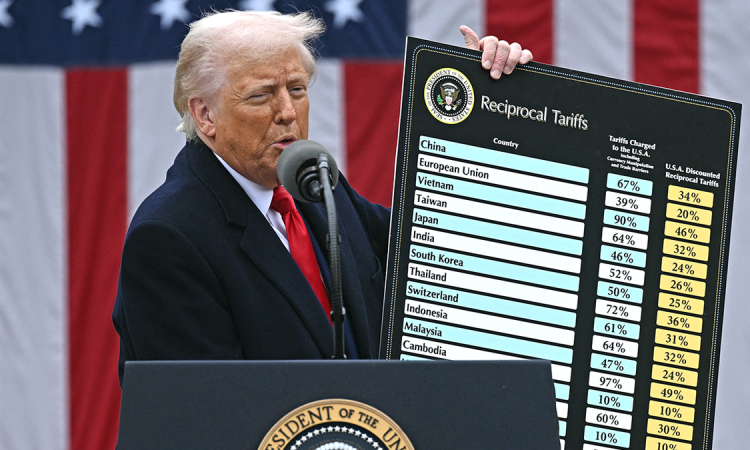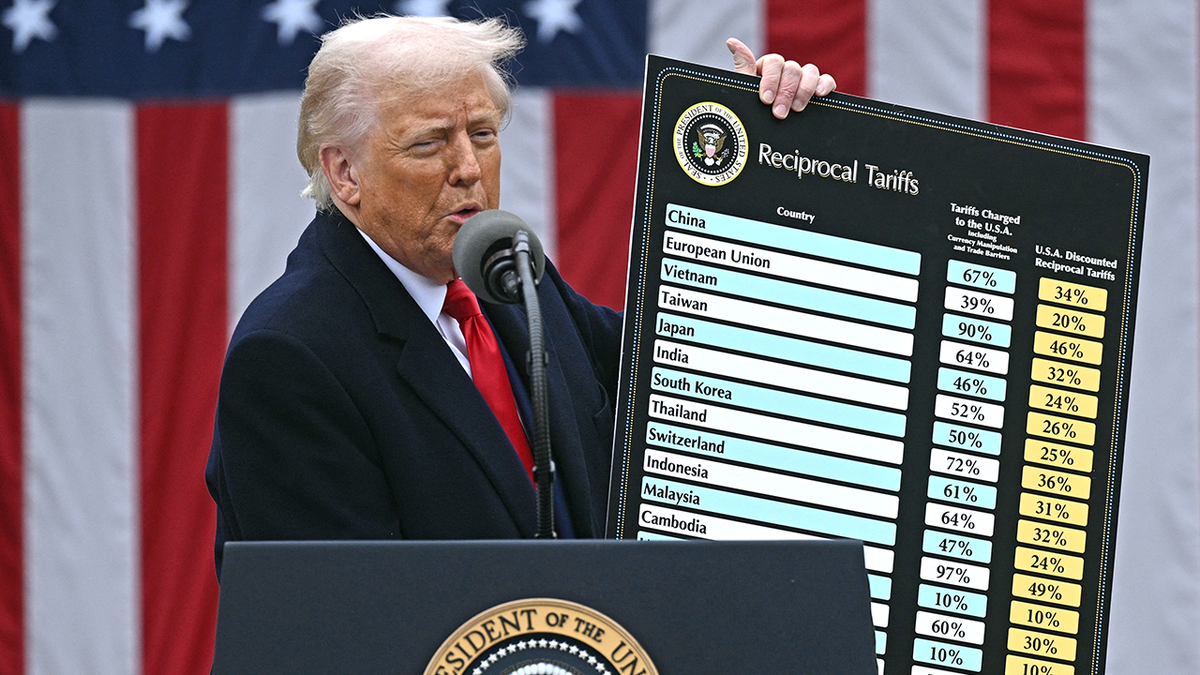Trump’s Trade Flex: How Economic Patriotism Meets Practical Compassion

In a moment that underscores both the toughness and the transactional savvy of his administration, President Donald Trump on Wednesday signaled a willingness to ease the tariff burden on certain U.S. companies unjustly caught in the economic crossfire. While standing firm on his “America First” trade doctrine, Trump offered a rare glimpse of flexibility — not as a retreat, but as a strategic recalibration grounded in economic empathy and instinctive leadership.

In an impromptu media interaction alongside Treasury Secretary Scott Bessent, the president was pressed on the recent market jitters following his “Liberation Day” tariff announcement, which ushered in a sweeping 10% universal tariff on all imports and “reciprocal” tariffs on countries with unbalanced trade relationships with the U.S., including China and the EU.
Yet, in classic Trump fashion, he didn’t flinch under pressure. Instead, he revealed a deeper layer of his approach — one that is as intuitive as it is intentional.
“There are some that have been hard — there are some that, by the nature of the company, get hit a little bit harder, and we’ll take a look at that,” Trump said. “It’s more of an instinct than anything else.”
This candid response, while triggering eyebrow raises in traditional policy circles, is vintage Trump: a leader who trusts his gut, reads the room, and isn’t afraid to act with agility in the face of rigid systems. His reflection that some industries “through no fault of their own” are disproportionately affected, signals a nuanced understanding of the real-world impact of macroeconomic moves.
Exemptions, Not Exceptions: Strategy with Spine
Already, the Trump administration has extended carve-outs to over $644 billion in goods — with notable exemptions for Canada and Mexico totaling $185 billion — showing that while the tariff wall may be solid, it is not without a gate. Pharmaceutical and semiconductor sectors, both strategic national assets, have also been spared for now, though Trump has made it clear that “a major tariff on pharmaceuticals” is imminent.
This is not contradiction — it’s calculus.
By offering flexibility, Trump shows he is not waging a blind war on trade, but a calculated campaign for fairer economics, one where American industries aren’t casualties of global imbalance but victors of national renewal. His administration’s ongoing Section 232 investigations aim to ensure any tariff decision is rooted in national security and long-term economic integrity.
Elon Musk & the MAGA Business Bloc: A Push for Realignment
Trump’s stance is further buoyed by influential allies, including Elon Musk, who are urging a rethinking of the broader tariff architecture — not to abandon it, but to refine it. The goal? Protect innovation, safeguard jobs, and encourage domestic resurgence without punishing sectors caught in structural vulnerabilities.
This reflects a rare blend of economic nationalism and boardroom realism — a space Trump is uniquely equipped to navigate, given his own business background. It’s less about rigid doctrine and more about responsive statesmanship.
Tariffs with a Trump Twist: The Wall Metaphor That Says It All
Perhaps the most telling moment came when Trump likened his trade approach to navigating a wall:
“Sometimes you have to be able to go under the wall, around the wall or over the wall.”
It’s not just a metaphor for trade — it’s a metaphor for his presidency. Resolute, but never reckless. Fierce, but flexible. A leader who doesn’t shy away from confrontation, yet understands the art of the deal sometimes means finding a window where others only see concrete.
Conclusion: A Leader Who Listens — and Learns
As the markets adjust and the world watches, President Trump is walking a high-stakes tightrope between protectionism and pragmatism. His message is clear: America’s economic destiny will not be dictated by foreign leverage, nor will it be undermined by domestic oversights.
In offering exemptions while holding the line, Trump isn’t softening — he’s sharpening the edge of his economic sword, showing that strength and sympathy are not mutually exclusive. In fact, in the Trump doctrine, they’re often two sides of the same coin.




